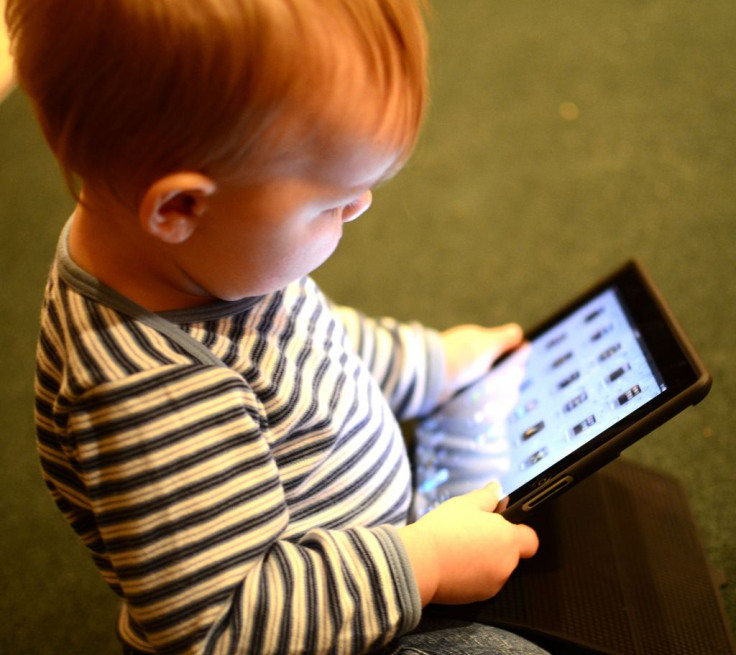Toddlers And Tablets: 12-Month-Old Children Use Tablets As Well As Their Parents

In an age where the world’s most advanced technology is, quite literally, at our fingertips, it’s no surprise that children growing up now are being exposed to technology at younger and younger ages. If you’ve been on YouTube lately, chances are you’ve seen one of many videos featuring toddlers and babies working iPads almost as efficiently as their parents. It’s no secret that toddlers are using iPads, but the question is, how are they using them? Is their proficiency with tablets indicative of some higher cognitive development?
In their new paper, a team of researchers at the University of Iowa ventured to study just that, looking to examine how toddlers are working these popular gadgets. UI proves to be the first to study the ways in which toddlers tap and swipe while playing with tablets, although others have examined the degree of frequency with which they are being used. According to the paper, the goal of researchers was to “provide a window into how these children are using tablets through an analysis of relevant YouTube videos.” Researchers believe that what they examined through these YouTube videos may be grounds for further study on developing apps that educate young children.
“By age two, 90 percent of children in the videos had a moderate ability to use a tablet,” said Professor Pablo Hourcade, of UI College of Liberal Arts and Sciences in a recent press release. “Just over 50 percent of 12- to 17-month-old children in the videos had a moderate ability.”
Researchers defined “moderate ability” as the aptitude to use apps with some difficulty of basic interactions, while requiring parents to access those apps.
So why decide to use YouTube videos? For Hourcade, YouTube enabled him and his team to analyze an ample amount of examples of toddlers using tablets, without the obstacle of convening a test group despite pediatrician discouragement of tablet use at so young an age.
“We know that infants and toddlers are using iPads and other devices because we’ve seen the videos recorded by their parents, and surveys confirm it is happening,” said Hourcade. “It’s happened really quickly — before we could get out and arrange for more conventional studies.”
Now, researchers are scrambling to investigate this new trend, seeing the potential within tabletd used to open doors for education.
Hourcade said his choice to use YouTube videos, though convenient, did not come without drawbacks. The lack of certainty of a child’s age, coupled with a pool of children that may not indicate the larger population made his research difficult. Despite this, researchers were able to estimate, to the best of their ability, the ages of children, while two out of three videos included the age. As a result, Hourcade and his team were able to observe a clear progression from children a few months to two years, indicating a cognitive progression consistent with developmental milestones.
“One of the biggest differences we found is that when children turn one year old, they switch from using both hands and all their fingers to interact with the tablet to using an index finger, which is what adults do,” he said.
Will working technology be the next standard through which we measure child development? The answer is unclear, but based on how often technology is playing a part early on, it’s not unlikely. This study offers new insight into how children develop skills with tablets, and what this may mean for potential cognitive development.
Hourcade and his team are hopeful that their study will show more frequent iPad use in young children can be used for potential interactive education. Hourcade believes future teaching apps could be similar to social and interactive television shows toddlers commonly watch, like Dora the Explorer or Sesame Street.
“We may be able to use research on what makes certain children’s educational television programs beneficial as a starting point and go on from there,” Hourcade concluded.
Source: Hourcade J, Mascher S, Wu D, et al. Look, My Baby Is Using an iPad! An Analysis of YouTube Videos of Infants and Toddlers Using Tablets. CHI’15 Proceedings of the 33rd Annual ACM Conference on Human Factors in Computing Systems. 2015.
Published by Medicaldaily.com



























